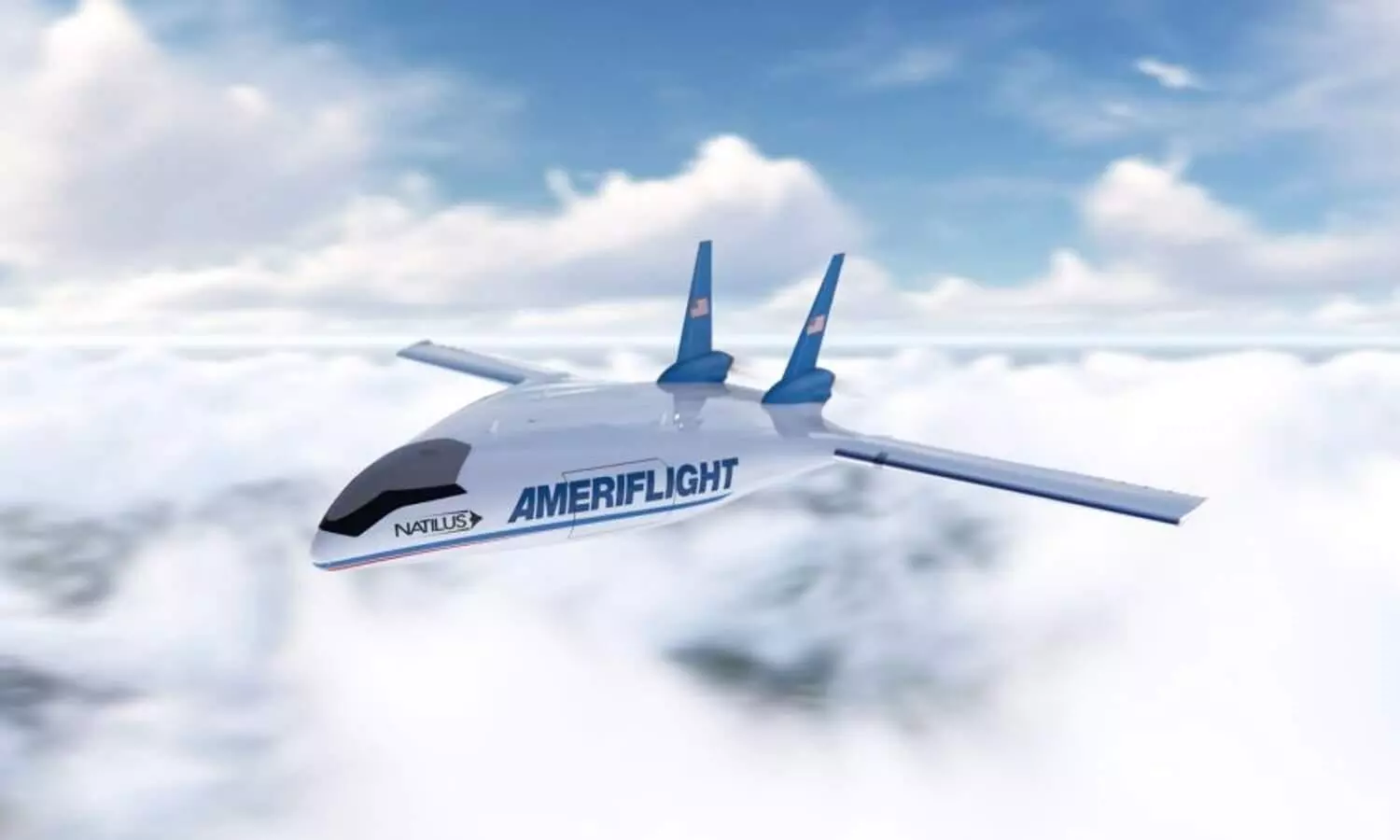
Natilus, Ameriflight sign deal for 20 cargo aircraft
Total commitments for Natilus now $6.8 billion for delivery of 460+ aircraft

Natilus, a U.S. corporation that produces and designs the world's first autonomous aircraft for efficient and sustainable freight transport, has announced that Ameriflight, a freight operations industry leader, has become the first regional U.S. carrier to sign an Aircraft Purchase Agreement with Natilus. The Ameriflight agreement for 20 Natilus Kona feeder aircraft for $134 million extends overall commitments for delivering 460+ aircraft at $6.8 billion.
Ameriflight is the nation's biggest Part 135 cargo airline, with more than 1,500 weekly departures to 200 locations in the United States, Canada, Mexico, the Caribbean, and South America. Ameriflight's major business is carrying high priority air freight to and from distant places around the country for overnight express carriers, and it is a critical part of the supply chain with UPS as its largest customer.
“Through this strategic partnership, we are positioning Ameriflight to build the roadmap for the future in cargo operations and be the first regional operator for Natilus in the United States,” said Alan Rusinowitz, President and Chief Operating Officer of Ameriflight. “Our goal is to grow our product and transform the way we do business through innovation and collaboration, and now through this new partnership with Natilus, Ameriflight will connect the world safely within a sustainable business model.”
“Innovation in design allows the Natilus fleet to carry more volume at lower costs, and the exploration of new sustainable fuels will lower carbon emissions,” explained Aleksey Matyushev, Co-Founder and CEO of Natilus “The Ameriflight agreement is a major move forward for the air cargo industry to strengthen the regional supply chain”.
The Natilus fleet of carbon fiber, blended-wing-body cargo aircraft offers a 60% reduction in operating costs and a 50% reduction in carbon emissions, enabling the opening of new and emerging markets in remote areas where larger aircraft lack runway capacity and/or infrastructure to land, via both scheduled and specialized operations. This will supply much-needed medications, food, and other necessities for the development of these distant communities.
“Developing autonomous solutions that are purpose-built to address the needs of the air cargo market is one important step toward developing more robust long-term solutions,” continued Matyushev. “Autonomous technologies seek to utilize labor more efficiently by allowing a single pilot to control multiple aircraft, helping address the dire pilot shortage”.

